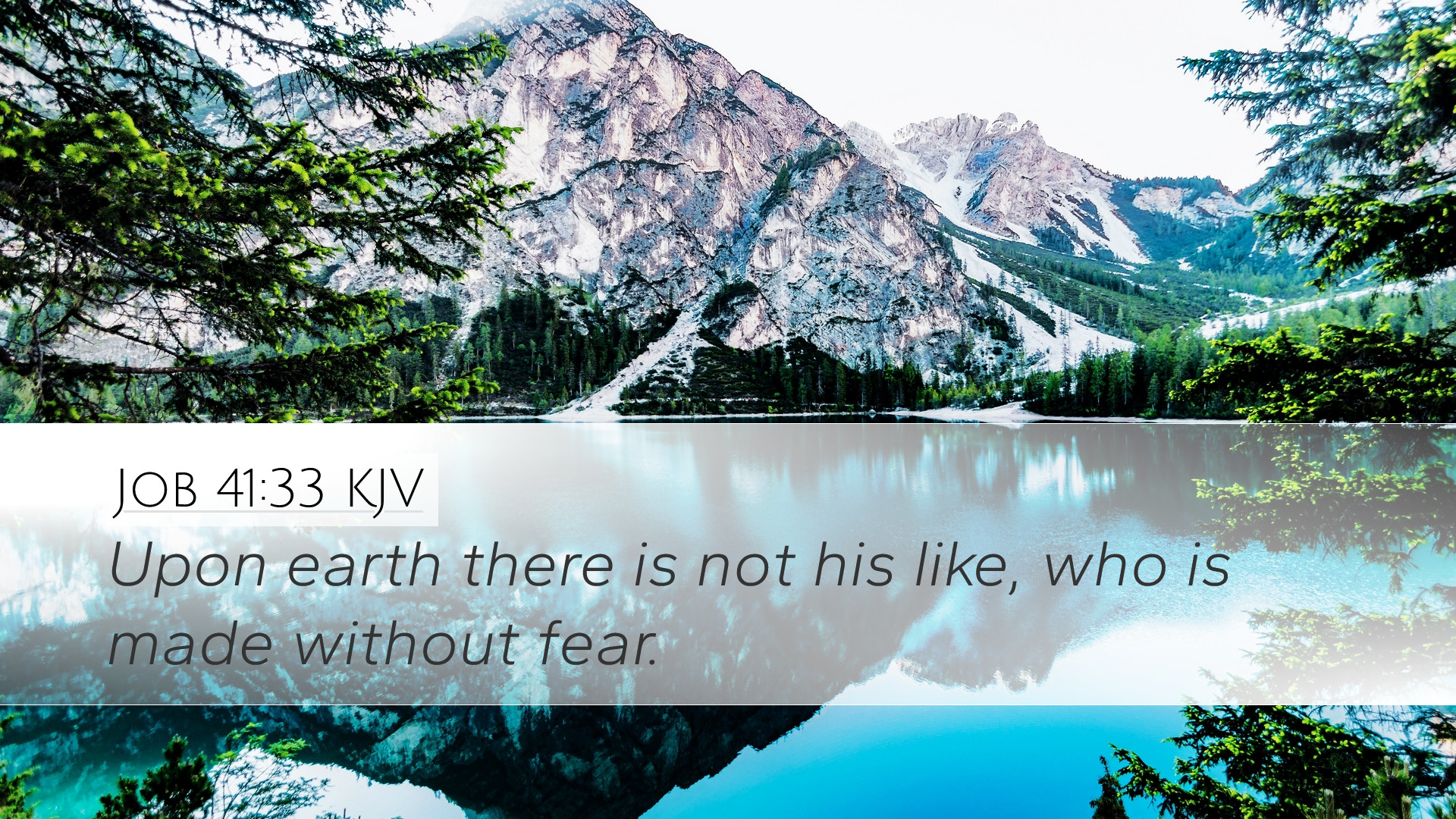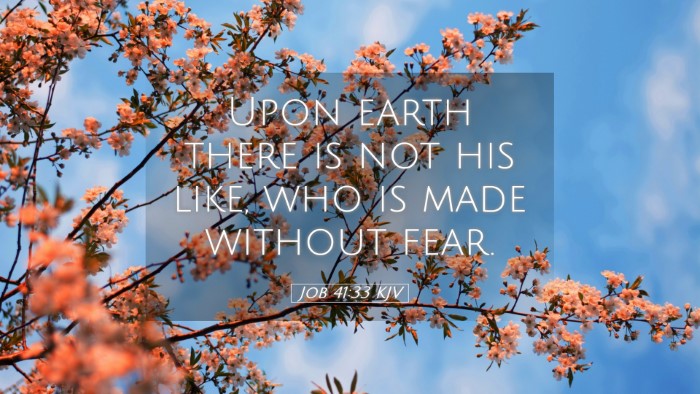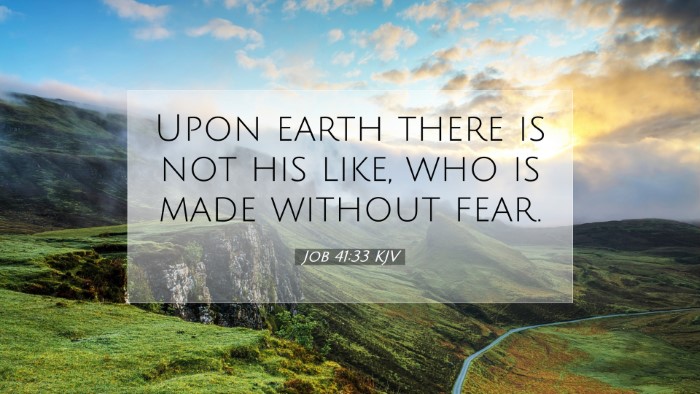Commentary on Job 41:33
Verse Context: Job 41:33 reads, "Upon earth there is not his like, who is made without fear." This verse is part of a larger discourse concerning the behemoth and the leviathan, creatures that symbolize God's power and sovereignty over creation.
Exegesis and Analysis
This passage draws attention to the uniqueness and incomparable nature of the leviathan as a representation of God's creations. In ancient Near Eastern literature, references to such fearsome creatures often illustrate the might of divine authority. Job's acknowledgment of the leviathan's unmatched status on earth serves as a reminder of humanity's limitations in the face of divine craftsmanship.
Insights from Commentary
-
Matthew Henry:
Henry emphasizes that the leviathan is a symbol of God's omnipotence, asserting that no other creature can parallel its fearsome nature. He remarks that just as the leviathan instills fear, so too should the majesty of God inspire reverence in the hearts of mortals. His comments highlight the importance of recognizing our place in the created order, standing in awe of the Creator who commands such creatures.
-
Albert Barnes:
Barnes elaborates on how the leviathan’s unmatched fierceness is indicative of divine wisdom and strength. He points out that the mention of the leviathan serves to illustrate the futility of challenging God's authority. The fact that it is created without fear shows that God's creations operate under His sovereign rule and cannot act outside of His will, suggesting that God alone is worthy of ultimate reverence.
-
Adam Clarke:
Clarke interprets the leviathan as representing the chaos of the sea, which in Hebrew tradition often stands for evil or chaotic forces. He interprets this verse within the broader theological framework that God has control over all chaotic elements in life. The leviathan serves as a metaphor for God's dominance, effectively communicating that there is none like Him in power and authority.
Theological Implications
The theological implications of Job 41:33 are profound. This verse powerfully asserts God’s sovereignty. It encourages believers to reflect on the majesty and grandeur of God compared to the creaturely world, inviting a posture of humility and reverence.
Creation and Sovereignty
The unique position of the leviathan as 'not like any on earth' highlights God's role as the creator. In the context of Job’s suffering, this serves as an important reminder of God’s ultimate authority over all circumstances, including the trials that Job faces. The assurance that God remains supreme over chaos provides comfort in times of hardship.
The Role of Fear and Reverence
The mention of fear in relation to the leviathan also leads to a discussion about the nature of reverence towards God. The lack of fear exhibited by the leviathan suggests a refusal to recognize God’s authority, contrasting humanity's call to fear the Lord. Thus, this verse becomes a foundational text for understanding the appropriate attitude of worship—one grounded in reverence for God’s power and might.
Practical Applications
- For Pastors: This passage can be utilized in sermons about God’s sovereignty and the awe of creation. It can encourage congregants to reflect on their relationship with God amid life's uncertainties.
- For Students: The exploration of this text serves as a valuable study in the literary and thematic elements present in ancient Hebrew poetry, revealing how creation narratives inform theological discourse.
- For Theologians: This verse invites deeper exploration into creation theology, revealing insights about God’s power, nature, and the fear that should characterize human interaction with the divine.
- For Bible Scholars: Analyzing the cultural and historical context of leviathan in Near Eastern literature can deepen understanding of the theological significance intended by the author of Job.
Conclusion
Ultimately, Job 41:33 stands as a monumental declaration of God’s incomparable power and authority. Embracing the insights from historical commentaries reinforces the importance of recognizing our place as part of God's creation, prompting a response of reverent fear that points towards worship and acknowledgment of His sovereignty over all creation.


